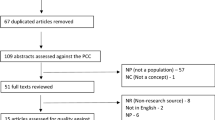Abstract
Objective
Timely, specific, behaviorally-based feedback is a cornerstone of medical education. The authors review basic tenets of effective feedback delivery in the context of potential challenges faced by (non-United States) international medical graduates (IMGs).
Method
The authors provide a brief summary of the elements of effective feedback, with illustrations of potential barriers for IMGs.
Results
Many IMGs were trained in a hierarchical system, where feedback was delivered publicly, in a manner associated with shame and embarrassment. These experiences, combined with the challenge of functioning in a second language and anxieties over exposing weaknesses, present some barriers that make it more difficult for them to participate in feedback inquiry, self-reflection, and reciprocal feedback.
Conclusions
These challenges can be mitigated by acknowledging the anxieties that learners may have, fostering a learning culture that values feedback as an expected and important part of all learning, ensuring that all (learners and supervisors) are trained in feedback skills, and clear setting of expectations.
Similar content being viewed by others
References
Ende J: Feedback in clinical medical education. JAMA 1983; 250:777–781
Teunissen PW, Stapel DA, van der Vleuten C, et al: Who wants feedback? an investigation of the variables influencing residents’ feedback-seeking behavior in relation to night shifts. Acad Med 2009; 84:910–917
Bates J, Andrew R: Untangling the roots of some IMGs’ poor academic performance. Acad Med 2001; 76:43–46
Brotherton SE, Etzel SI: Graduate medical education, 2009–2010. JAMA 2010; 304:1255–1270
American Psychiatric Association Resident Census 2009–2010
American Association of Medical Colleges: GME Track 2009 au7._Walsh A. Working with IMGS: Delivering Effective Feedback. A Faculty Development Program for Teachers of International Medical Graduates. McMaster University, April 2006
Searight HR, Gafford J: Behavioral science education and the international medical graduate. Acad Med 2006; 81: 164–170
Dorgan KA, Lang F, Floyd M, et al: International medical graduate—patient communication: a qualitative analysis of perceived barriers. Acad Med 2009; 84:1567–1575
Brinko K: The practice of giving feedback to improve teaching: what is effective? J Higher Ed 1993;64(5):574–593
Hewson MG, Little ML: Giving feedback in medical education: verification of recommended techniques. J Gen Intern Med 1998; 13:111–116
Bienstock JL, Katz NT, Cox SM; Association of Professors of Gynecology and Obstetrics Undergraduate Medical Education Committee: To the point: medical education reviews: providing feedback. Am J Obstet Gynecol 2007; 196:508–513
Boehler M, Rodgers D, Schwinnd C, et al: An investigation of medical student reactions to feedback: a randomized, controlled trial. Med Ed 2006; 40:746–749
Milan FB, Parish SJ, Reichgott MJ: A model for educational feedback based on clinical communication skills strategies: beyond the “feedback sandwich.” Teach Learn Med 2006; 18:42–47
Elliott R, Yudkowsky R, Vogel R: Quality in psychiatric training: development of a resident satisfaction questionnaire. Acad Psychiatry 2000; 24:41–46
Ellencweig N, Weizman A, Fischel T: Factors determining satisfaction in psychiatry training in Israel. Acad Psychiatry 2009; 33:169–173
Accreditation Council for Graduate Medical Education, Common Program Requirements, July 2011
Author information
Authors and Affiliations
Corresponding author
Rights and permissions
About this article
Cite this article
Broquet, K.E., Punwani, M. Helping International Medical Graduates Engage in Effective Feedback. Acad Psychiatry 36, 282–287 (2012). https://doi.org/10.1176/appi.ap.11020031
Received:
Revised:
Accepted:
Published:
Issue Date:
DOI: https://doi.org/10.1176/appi.ap.11020031



